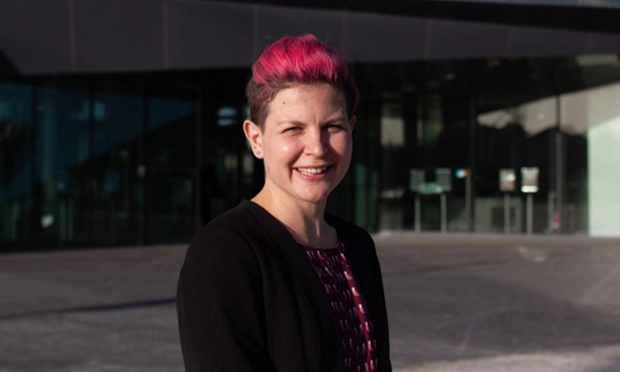Rise in drug deaths shows UK policy is ‘killing us’, says Dalston councillor

Cllr Zoë Garbett AM. Photograph: Green Party
Dalston councillor Zoë Garbett AM (Green) says the latest data shows the UK’s current drug policy is “killing us” – as she calls on City Hall to legalise and regulate illicit substances.
Yesterday, figures from the Office for National Statistics (ONS) revealed a spike in deaths related to drug poisoning and misuse.
The number of fatalities across England and Wales rose by more than 500 in 2023 compared to the previous year.
Garbett told the Citizen: “That’s almost five times as many as died from homicides, five times as many as died from collisions on London’s roads, yet I haven’t seen a single headline.”
Garbett, who is an Assembly Member (AM) as well as a councillor, said that despite the billions of pounds spent on enforcing drug laws, illicit substances were still readily available and the supply was likely to become more toxic.
“If we want to put a stop to drug deaths in our communities, [London mayor Sadiq Khan] must listen to science, listen to advocates, and most importantly listen to drug users and support the legalisation and regulation of drugs in London.”
The data shows that in 2023, Hackney saw 20 deaths related to drug misuse.
It also revealed that nationwide, fatalities related to drug poisoning doubled between 2012 and 2023.
Garbett and other Green councillors have advocated for the rollout of safe injection rooms in the city as a key way to address substance misuse.
In these facilities, users are allowed to take illicit drugs while supervised by trained staff to prevent overdoses, support individuals to use them more safely, and connect them with addiction treatments and other health services.
Among other factors, the Greens cited a report from the London Assembly health committee from 2022, which recommended the capital ‘lead the way’ in piloting these spaces.
The UK was due to open its first greenlit drug consumption room in Glasgow on 21 October, but it was delayed.
However, the Greens maintain that this should be part of a wider strategy that destigmatises “problematic” substance use and treats it as a public health issue, not a crime.
“Right here in Hackney, more than two dozen of our neighbours have died from drug-related poisoning, none of which had to happen,” Garbett said.
“Steps like safe injection rooms and needle exchanges are a start, but in the end we need to move this city towards legalising and regulating drugs so that we can save lives.”
The main figures from the ONS data revealed:
- A rise in deaths related to drug poisoning from 84.4 deaths per million or 4,907 deaths in 2022 to 93.0 deaths per million people or 5,448 deaths in 2023.
- Over double the rate of drug deaths in men, with a rate of 127.6 deaths per million compared to 59.8 deaths per million among females.
- Double the rate of drug-poisoning deaths since 2012, when the rate was 46.5 deaths per million compared to the 2023 rate of 93.0 deaths per million.
“I know today’s latest death numbers can be abstract, but this data shows more lives ruined, more families destroyed, and more communities ravaged by an epidemic that is entirely within our control,” Garbett said.
